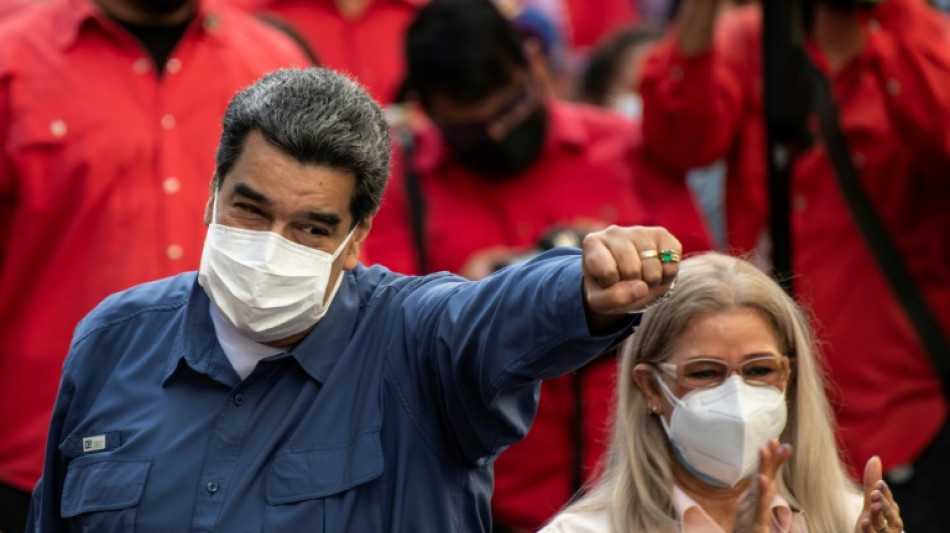
-
 Djokovic advances at US Open as Sabalenka, Alcaraz step up title bids
Djokovic advances at US Open as Sabalenka, Alcaraz step up title bids
-
Venice Film Festival opens with star power, and Gaza protesters
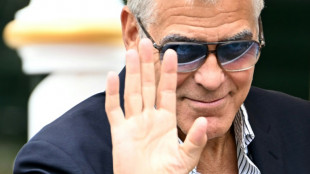
-
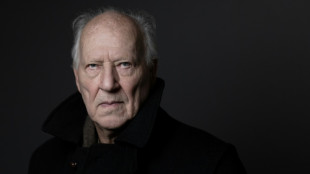 Globetrotting German director Herzog honoured at Venice festival
Globetrotting German director Herzog honoured at Venice festival
-
Djokovic fights off qualifier to make US Open third round

-
 Duplantis, Olyslagers seal Diamond League final wins
Duplantis, Olyslagers seal Diamond League final wins
-
Israel demands UN-backed monitor retract Gaza famine report

-
 Vingegaard reclaims lead as UAE win Vuelta time trial
Vingegaard reclaims lead as UAE win Vuelta time trial
-
Shooter kills 2 children in Minneapolis church, 17 people injured

-
 Defence giant Rheinmetall opens mega-plant as Europe rearms
Defence giant Rheinmetall opens mega-plant as Europe rearms
-
Van Gogh Museum 'could close' without more help from Dutch govt
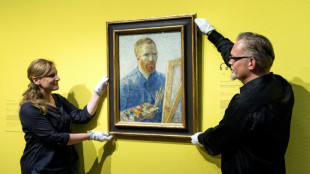
-
 Indonesia's Tjen exits US Open as Raducanu moves on
Indonesia's Tjen exits US Open as Raducanu moves on
-
Trump administration takes control of Washington rail hub

-
 Stock markets waver ahead of Nvidia earnings
Stock markets waver ahead of Nvidia earnings
-
Conservationists call for more data to help protect pangolins

-
 US Ryder Cup captain Bradley won't have playing role
US Ryder Cup captain Bradley won't have playing role
-
French star chef to 'step back' after domestic abuse complaint

-
 Rudiger returns, Sane dropped for Germany World Cup qualifiers
Rudiger returns, Sane dropped for Germany World Cup qualifiers
-
S.Africa calls US welcome for white Afrikaners 'apartheid 2.0'

-
 'Resident Evil' makers marvel at 'miracle' longevity
'Resident Evil' makers marvel at 'miracle' longevity
-
Denmark apologises for Greenland forced contraception
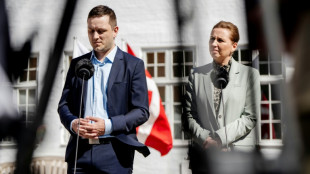
-
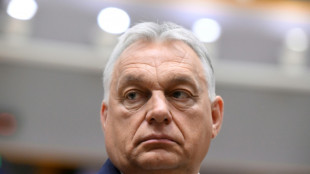 Hungary web users lap up footage of PM Orban's family estate
Hungary web users lap up footage of PM Orban's family estate
-
Alexander Isak selected by Sweden despite Newcastle standoff

-
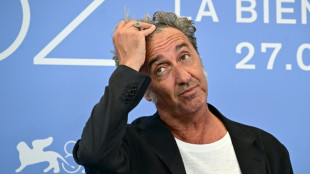 Italy's Sorrentino embraces doubt in euthanasia film at Venice
Italy's Sorrentino embraces doubt in euthanasia film at Venice
-
Trump urges criminal charges against George Soros, son

-
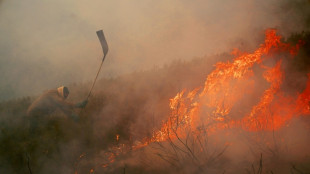 Wildfires pile pressure on Spanish PM
Wildfires pile pressure on Spanish PM
-
Stock markets mixed ahead of Nvidia earnings

-
 Football's loss as hurdles sensation Tinch eyes Tokyo worlds
Football's loss as hurdles sensation Tinch eyes Tokyo worlds
-
Pakistan blows up dam embankment as it braces for flood surge

-
 Lego posts record sales, sees market share growing further: CEO
Lego posts record sales, sees market share growing further: CEO
-
France overlook Ekitike for World Cup qualifiers, Akliouche called up

-
 Rain no obstacle, Lyles insists ahead of Diamond League finals
Rain no obstacle, Lyles insists ahead of Diamond League finals
-
Almodovar urges Spain cut ties with Israel over Gaza
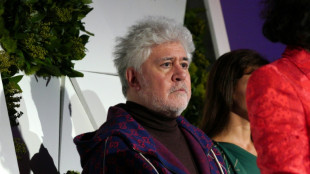
-
 Macron gives 'full support' to embattled PM as crisis looms in France
Macron gives 'full support' to embattled PM as crisis looms in France
-
Stock markets diverge awaiting Nvidia earnings

-
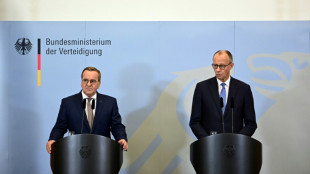 German cabinet agrees steps to boost army recruitment
German cabinet agrees steps to boost army recruitment
-
Denmark summons US diplomat over Greenland 'interference'
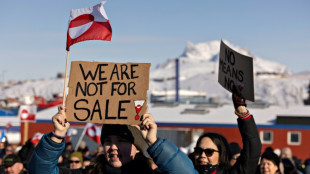
-
 German factory outfitters warn of 'crisis' from US tariffs
German factory outfitters warn of 'crisis' from US tariffs
-
Israel ups pressure on Gaza City as Trump eyes post-war plan

-
 Floods, landslides kill at least 30 in India's Jammu region
Floods, landslides kill at least 30 in India's Jammu region
-
Former player comes out as bisexual in Australian Rules first

-
 Indian spin great Ashwin calls time on IPL career
Indian spin great Ashwin calls time on IPL career
-
India faces world football ban for second time in three years
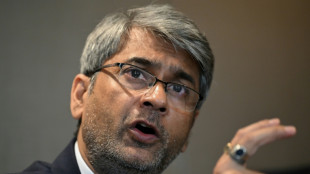
-
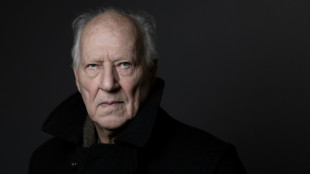 Globetrotter Herzog to get special Venice award
Globetrotter Herzog to get special Venice award
-
'Old things work': Argentines giving new life to e-waste

-
 Showtime for Venice Film Festival, with monsters, aliens, Clooney and Roberts
Showtime for Venice Film Festival, with monsters, aliens, Clooney and Roberts
-
Thai woman jailed for 43 years for lese-majeste freed
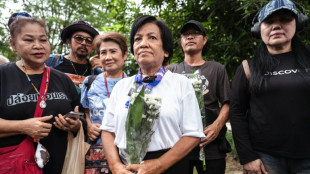
-
 What is swatting? Shooting hoaxes target campuses across US
What is swatting? Shooting hoaxes target campuses across US
-
Row over Bosnia's Jewish treasure raising funds for Gaza
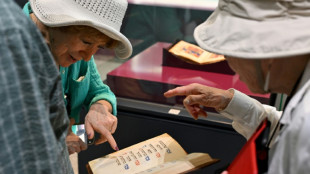
-
 Police search Australian bush for gunman after two officers killed
Police search Australian bush for gunman after two officers killed
-
NZ rugby player who suffered multiple concussions dies aged 39


No joke: Political satire in Venezuela a risky business
A 72-year-old grandmother who named a popular snack after the "widow" of President Nicolas Maduro -- still very much alive -- has become the latest casualty of a Venezuelan hate speech law denounced by rights defenders.
Olga Mata was arrested last week after posting a comedic video on TikTok in which she posed as a food vendor advertising a type of arepa, a maize snack, named after Maduro's wife Cilia Flores.
The arepa in question is usually called a "widow" in Venezuela for not having any filling.
When a voice off camera points out that Flores is not yet a widow, Mata responds: "Right... but it is what we all want."
Another arepa featured in the clip was named after attorney general Tarek William Saab, who ordered Mata's arrest for "promoting hate".
Her son, Florencio Gil, was detained for "instigating the assassination of public personalities."
According to rights group Espacio Publico (Public Space), Venezuela's so-called "Law against Hate" was used to charge people in 17 criminal cases last year.
The law was passed in 2017 by a loyalist "Constitutional Assembly" created by Maduro and which replaced the then opposition-controlled National Assembly.
It provides for sentences of up to 20 years in jail for actions deemed "incitement of hatred."
- 'Feel like prisoners' -
After a public outcry, Saab on Monday announced Mata had been charged and released under order to report to court every 30 days.
She was also made to release a new video apologizing for the first one.
Her son was cleared of all charges.
"It is a way to make us feel like prisoners, even if we are not in a cell," Mata said after her release.
Her case is but the most recent one.
In March last year, journalist Milagros Mata and poet Juan Munoz were arrested for "incitement to hatred" after publishing a satirical text entitled "Mortal Wedding" on Facebook.
It poked fun at an extravagant wedding celebrated at the height of the Covid-19 pandemic, and was said to have been attended by Saab.
Both people were later conditionally freed.
In 2018, two firefighters, Ricardo Prieto and Carlos Varon, were detained for 48 days over a viral video in which they showed a donkey they named "President Maduro."
They remain under judicial supervision.
- Not new -
For Espacio Publico director Carlos Correa, the "Law against Hate" had a vague definition of what constitutes hate speech, and disproportionate penalties.
"It causes people to refrain not only joking, but also from talking about matters of public interest such as denouncing corruption," Correa told AFP.
"The law is not there to determine whether a joke is in good or bad taste," he added.
Efforts to control free speech in Venezuela are nothing new.
Rayma Suprami, a Venezuelan cartoonist now living in the United States, was fired in 2014 from the newspaper where she worked for 19 years for a commentary on the country's poor health system that entailed then-president Hugo Chavez's signature petering out as a flat line on an electrocardiogram.
"Dictatorships have no humor, they don't get along with humor and what it represents: the reflection of what ordinary people think," Rayma told AFP.
"I was accused of inciting hatred, murder and terrorism," she recalled.
"You cannot make fun of power," added former colleague Eduardo "Edo" Sanabria, also in the United States.
"If they want to put you in jail, they will."
In a report last year, Human Rights Watch accused Maduro's government of frequently using "public accusations and other forms of harassment to intimidate and attempt to silence those who criticize the government."
Maduro's reelection in 2018 was not recognized by the United States and dozens of other countries over fraud claims.
In recent years, Venezuela has seen political satire disappear from the television and newspapers.
But for those so inclined, comic relief can be found in animated propaganda shorts on state TV of "Super Mustache" -- a character representing Maduro as a superhero pitted against the White House and opposition leaders.
O.Bulka--BTB

